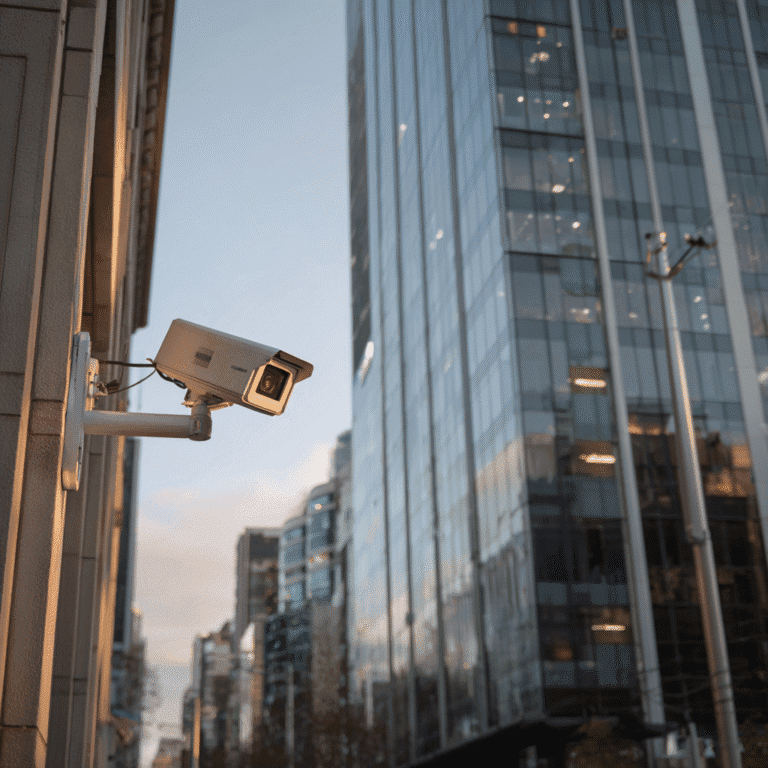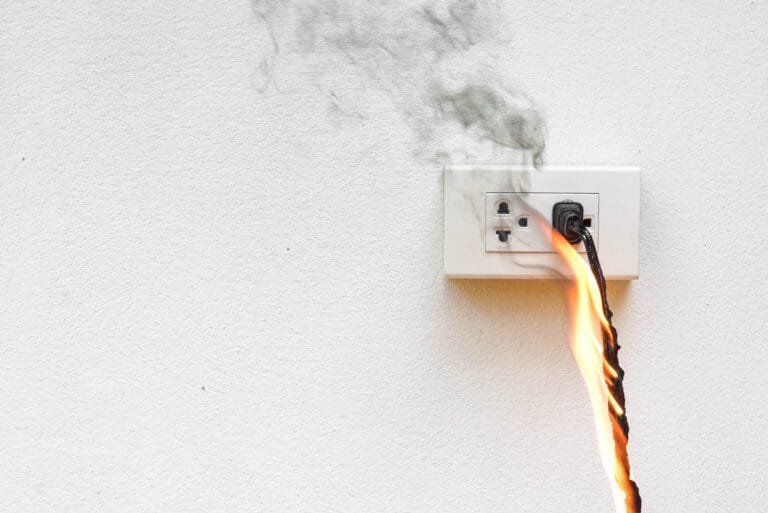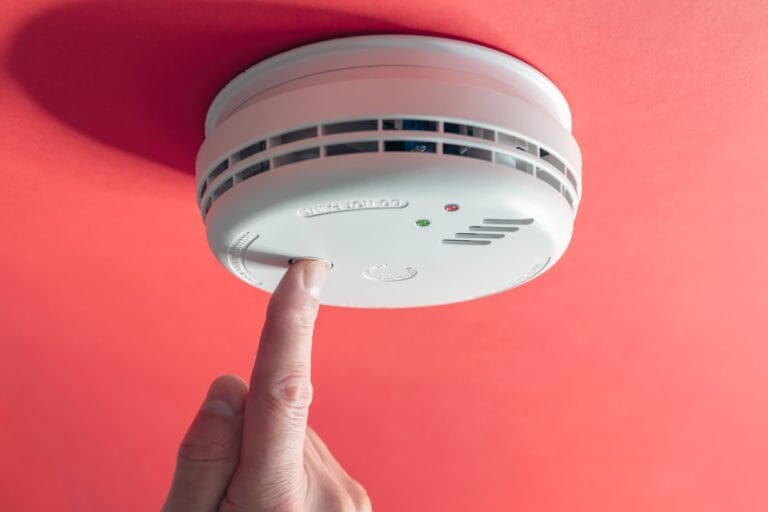Wired vs Wireless Security Cameras – Which one is better?
Choosing between wired vs wireless security cameras can make or break your property’s protection strategy. The decision impacts everything from installation complexity to long-term reliability, making it crucial to understand what sets these systems apart.
Wired security cameras connect directly to your power source and recording system through physical cables, delivering consistent performance and uninterrupted surveillance. These systems excel in permanent installations where reliability takes priority over flexibility. However, it’s essential to ensure that your home’s wiring is safe and up to standard. Here are 5 warning signs that your home’s wiring may be secretly unsafe.
Wireless security cameras operate through Wi-Fi signals and often run on battery power, offering unmatched placement freedom and simplified installation. They shine in scenarios requiring quick setup or temporary monitoring solutions.
The security camera wireless vs wired debate isn’t about finding a universal winner—it’s about matching the right technology to your specific situation. Your property layout, security requirements, budget constraints, and installation preferences all influence which system delivers optimal protection.
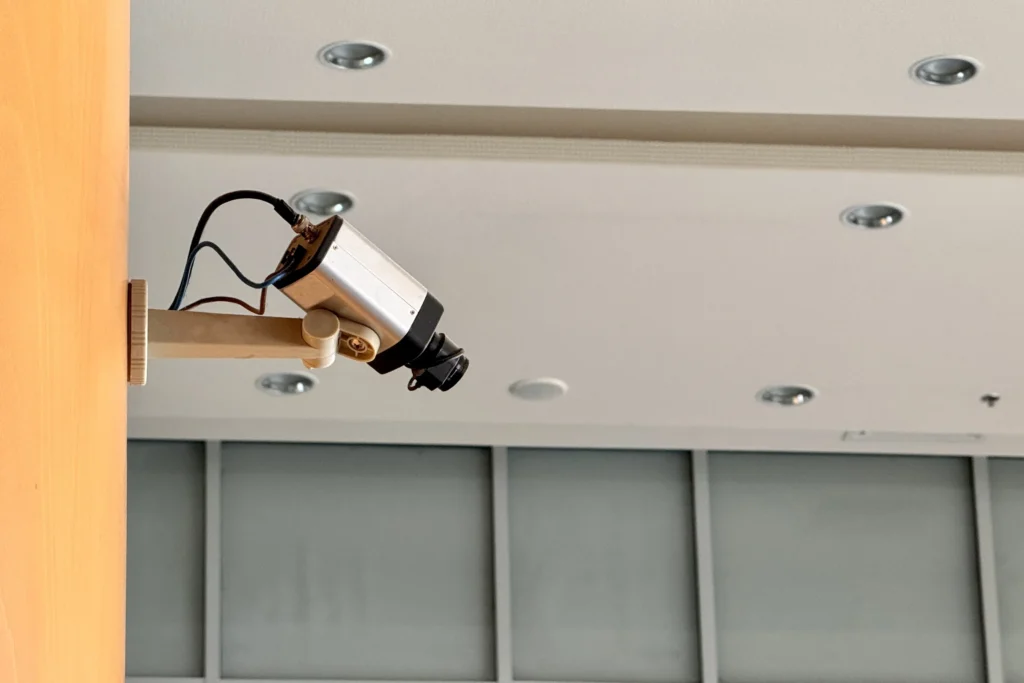
What Are Wired Security Cameras?
A wired security camera system operates through direct physical connections to both power sources and central recording hubs. These cameras receive electricity through dedicated power cables while transmitting video data via coaxial cables, Ethernet connections, or specialized security wiring to a centralized digital video recorder (DVR) or network video recorder (NVR).
The hardwired infrastructure creates an uninterrupted, stable connection that eliminates signal interference common with wireless alternatives. This direct connection approach makes wired security camera systems significantly less vulnerable to hacking attempts, as cybercriminals cannot intercept wireless signals or exploit network vulnerabilities.
Key Features of Wired Systems
- Continuous power supply ensures 24/7 operation without battery concerns
- Local storage capabilities through dedicated recording equipment
- Superior video quality with consistent data transmission
- Reliable performance unaffected by Wi-Fi network issues
Ideal Applications
Wired security camera installations excel in permanent setups where cameras remain in fixed positions. Banks, retail stores, manufacturing facilities, and government buildings rely on these systems for their dependable performance. Homeowners planning long-term security solutions also benefit from the stability these systems provide.
|
Pros |
Cons |
|---|---|
|
Stable, interference-free connection |
Complex installation requiring professional help |
|
Enhanced security against cyber threats |
Limited flexibility for camera repositioning |
|
Continuous recording capability |
Higher upfront installation costs |
|
Superior video quality |
Visible cables may affect aesthetics |
|
No battery maintenance required |
Vulnerable during power outages without backup |
When evaluating CCTV wired vs wireless options, wired systems deliver unmatched reliability for mission-critical security applications.
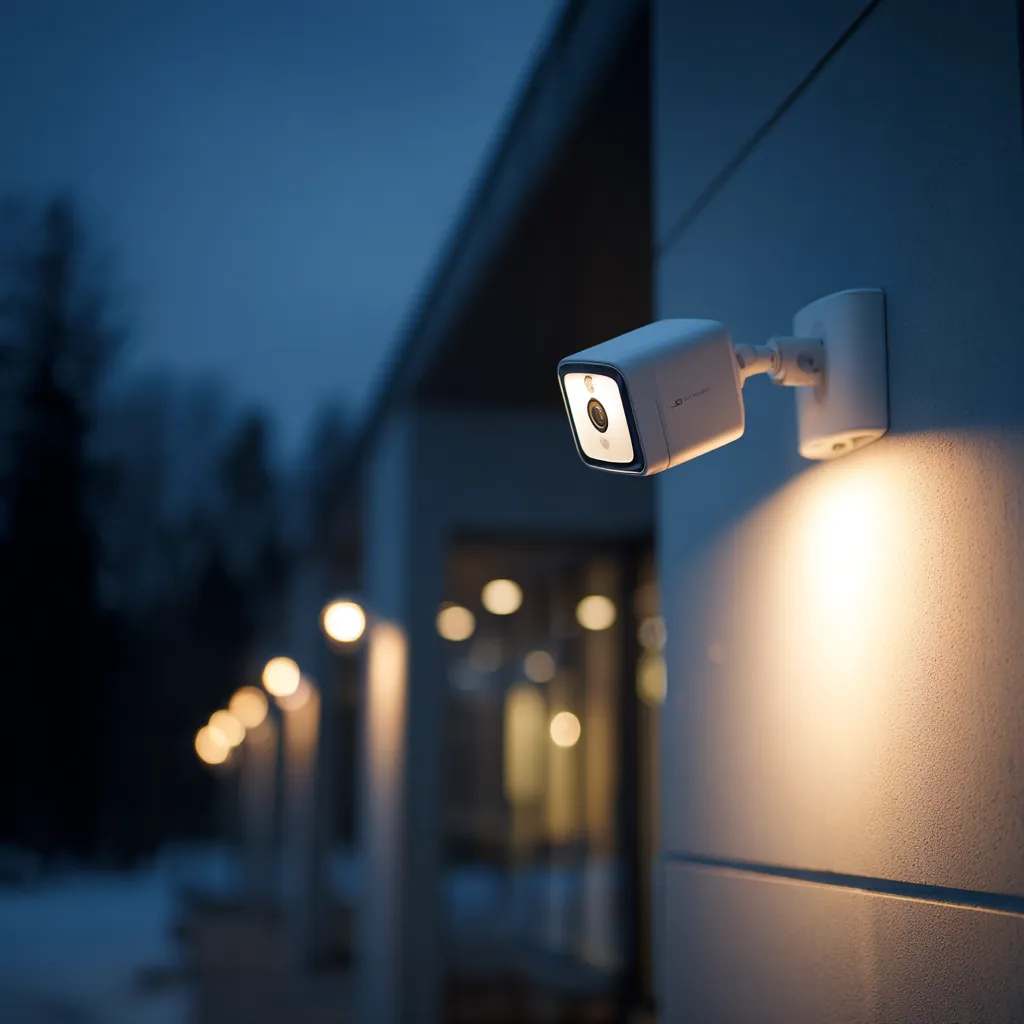
What Are Wireless Security Cameras?
Wireless security cameras transmit video footage through Wi-Fi signals to your network, eliminating the need for hardwired connections to a central recording hub. These systems offer two power options: battery-operated units that run independently for months, or plug-in models that connect to standard electrical outlets while maintaining wireless data transmission.
The cctv wireless vs wired debate often centers on flexibility. Wireless cameras excel in adaptability, allowing installation virtually anywhere within Wi-Fi range without drilling holes or running cables through walls. This scalability means expanding your security system becomes as simple as adding new cameras to your existing network.
Battery-powered wireless cameras provide unmatched reliability during power outages, continuing to record and transmit footage when traditional systems fail. This feature proves invaluable for maintaining security during emergencies or electrical disruptions.
Homeowners frequently choose wireless systems for their portability and ease of installation. Renters particularly benefit from these systems since they can relocate cameras without leaving permanent modifications to the property. Small apartments, temporary locations, and rental properties represent ideal scenarios for wireless camera deployment.
|
Advantages |
Disadvantages |
|---|---|
|
Quick DIY installation |
Potential Wi-Fi interference |
|
Flexible placement options |
Battery replacement needs |
|
Portable and removable |
Limited by Wi-Fi range |
|
Works during power outages |
Possible signal delays |
|
Scalable system expansion |
Higher long-term costs |
When considering is wired or wireless security cameras better, wireless options shine in situations requiring flexibility and temporary installations.
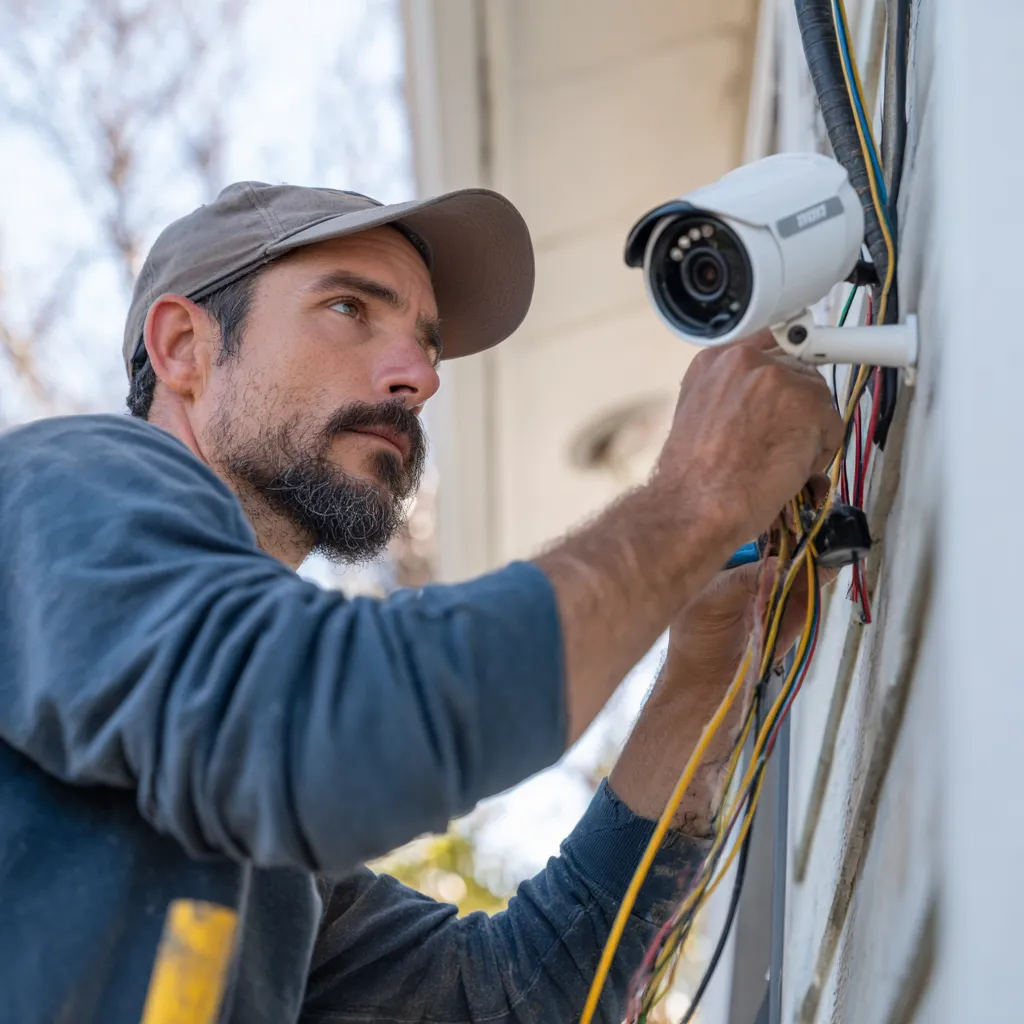
Wired vs Wireless Security Cameras: A Comparison Table
When choosing between wired or wireless security cameras, understanding the key differences helps you make an informed decision. This cctv wired vs wireless comparison breaks down essential factors that impact your security system’s performance.
|
Factor |
Wired Security Cameras |
Wireless Security Cameras |
|---|---|---|
|
Installation Complexity |
Requires professional installation, cable routing through walls |
DIY-friendly, mount and connect to Wi-Fi |
|
Power Source |
Hardwired to electrical system, consistent power |
Battery-powered or plugged in, may need charging |
|
Connection Stability |
Stable, uninterrupted signal transmission |
Dependent on Wi-Fi strength, potential interference |
|
Video Quality |
Consistent high-definition recording |
Quality varies with network bandwidth |
|
Security |
Less vulnerable to hacking, local storage |
Susceptible to Wi-Fi breaches, encryption dependent |
|
Scalability |
Limited by cable infrastructure |
Easy to add cameras anywhere with Wi-Fi |
|
Cost |
Higher upfront installation costs |
Lower initial investment, ongoing battery costs |
|
Maintenance |
Minimal ongoing maintenance |
Regular battery replacement, software updates |
|
Power Outage Impact |
Stops functioning without backup power |
Battery models continue operating |
|
Portability |
Permanent installation |
Easily relocated or removed |
This security cameras wired or wireless comparison reveals distinct advantages for different scenarios. Your specific security needs, budget, and installation environment determine which system delivers optimal protection for your property.
Which One Should You Pick? Wired vs Wireless Security Cameras Guide for Decision Making Based on Specific Use Cases
Determining is wired or wireless security cameras better depends entirely on your specific situation and security requirements. Each option serves different needs with distinct advantages.
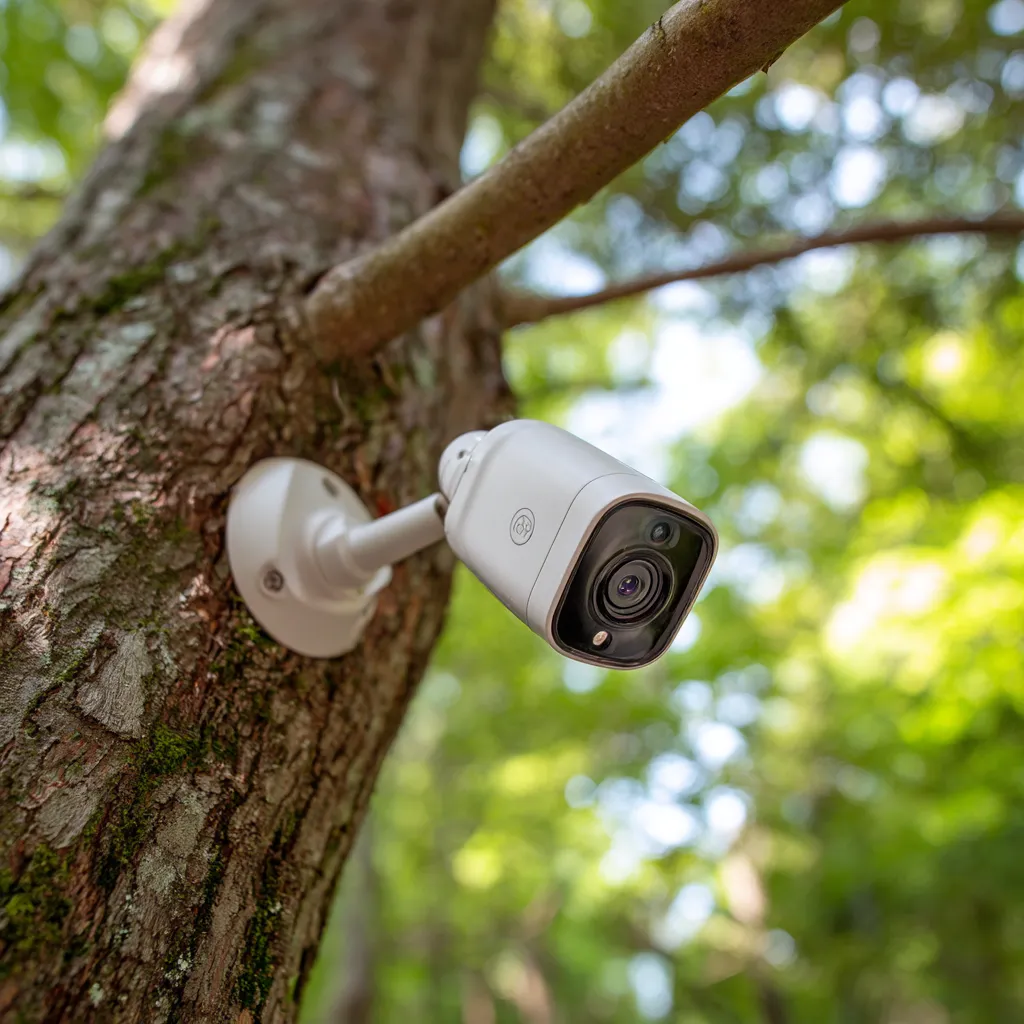
Homeowners Seeking Flexibility
Wireless cameras excel for residential properties where placement flexibility matters most. These systems adapt easily to changing security needs and allow repositioning without rewiring. Battery-powered models continue operating during power outages, maintaining protection when you need it most.
Small Businesses and Secure Facilities
Wired vs wireless security camera systems favor wired solutions for commercial environments requiring maximum reliability. Banks, warehouses, and retail stores benefit from continuous recording capabilities and stable connections that won’t drop during critical moments. The consistent power supply eliminates battery maintenance concerns.
Outdoor Installations
Weather-resistant options exist in both categories, though durability requirements vary by location. Extreme weather conditions may favor wired systems for their consistent performance, while wireless options offer easier maintenance access in hard-to-reach areas.
Renters and Temporary Setups
Choosing between wired vs wireless security camera systems becomes straightforward for renters. Wireless cameras install without permanent modifications and relocate effortlessly when moving to new properties.
Decision-Making Framework
Evaluate Your Environment:
- Permanent installations favor wired systems
- Temporary or changing needs suit wireless options
Budget Considerations:
- Wired systems require higher upfront installation costs
- Wireless cameras involve ongoing battery replacement expenses
Performance Requirements:
- Critical security applications demand wired reliability
- Casual monitoring accepts wireless convenience
Power Infrastructure:
- Limited electrical access supports wireless choices
- Abundant power sources enable wired installations
Conclusion
Choosing between wired vs wireless security cameras requires careful evaluation of your specific security needs, property layout, and long-term goals. Each system offers distinct advantages that align with different scenarios and requirements.
Your decision should reflect your unique circumstances – whether you prioritize reliability for a permanent business installation or flexibility for a rental property. Budget considerations, technical requirements, and installation complexity all play crucial roles in determining the right solution.
Don’t navigate this decision alone. Professional electricians and security system installers bring expertise that ensures optimal camera placement, proper installation, and system integration. Their guidance helps avoid costly mistakes and maximizes your security investment.
FAQs (Frequently Asked Questions)
What are the main differences between wired and wireless security cameras?
Wired security cameras are hardwired to a power source and central hub, offering uninterrupted stable connections, less susceptibility to hacking, local storage options, and continuous recording. Wireless security cameras use Wi-Fi signals and can be battery-operated or plugged in, providing flexibility in placement, easier installation, scalability, and the ability to operate during power outages if battery-powered.
Which type of security camera is better for homeowners seeking flexibility?
Wireless security cameras are recommended for homeowners seeking flexibility because they allow easy installation, portability, and scalability. They are ideal for renters or those who may relocate as they can be easily removed and reinstalled without complex wiring.
Why are wired security cameras preferred for businesses and secure facilities?
Wired security cameras offer a reliable and stable connection with less risk of hacking. They support continuous recording with local storage options, making them suitable for businesses and secure facilities that require dependable surveillance systems with permanent setups.
What factors should I consider when choosing between wired vs wireless security camera systems?
Key factors include the installation environment (permanent vs temporary), budget constraints (upfront cost versus long-term maintenance), desired video quality and recording reliability, power availability, and backup solutions. Evaluating these will help determine which system best fits your specific needs.
Are wireless security cameras effective during power outages?
Wireless security cameras that are battery-powered can continue operating during power outages, providing an advantage over wired systems that rely on constant power supply. This makes wireless cameras a good option for areas prone to power interruptions.
Should I consult a professional before installing a wired or wireless security camera system?
Yes, it is advisable to consult professional electricians or security system installers to get customized advice tailored to your unique needs. Professionals can help assess your environment and recommend the most suitable security camera system for optimal performance.



